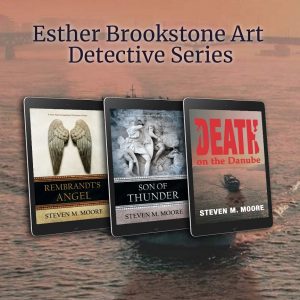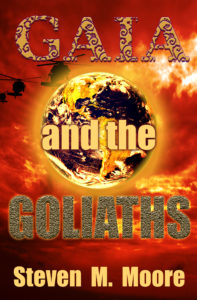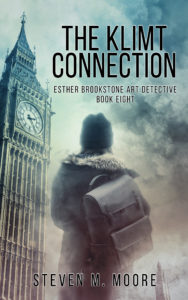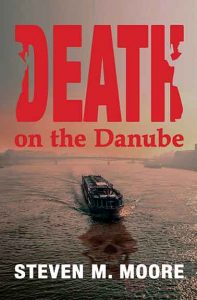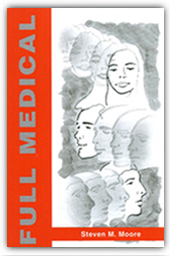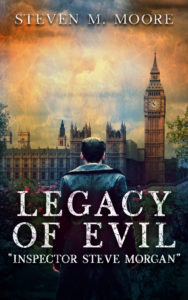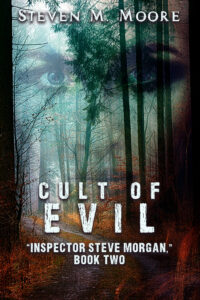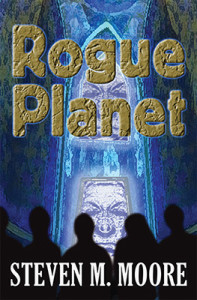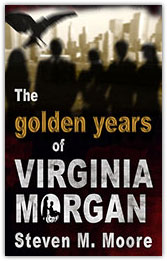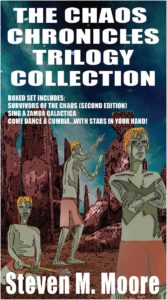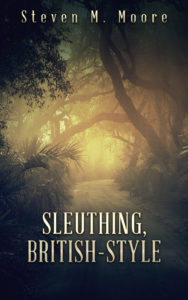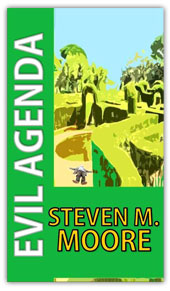Pros and cons of first-person stories…
February 7th, 2024Last week’s post about James Patterson, Inc., reminded me of some of the pros and cons of first-person stories. They’re usually first-person past, with the main character or chronicler relating what happened, but they can be first-person present as well. They’re good for mystery, crime, and thriller stories when the author wants the reader to learn what’s going on in lock-step with the person telling the story.
It’s also good writing technique even in sci-fi for the same reason. I’m into the third novel of “The Earthburst Saga,” a six-novel series by Craig Falconer. (I bought all seven at once in a bundle. Like my “Chaos Chronicles Trilogy,” that was too good of a bargain to pass up!) After the first, Last Man Standing, I thought, “What’s this author going to do for an encore?” The second novel is different but just as engaging, though. (You may take this part of the post as five-star reviews of the two, by the way.) Emotions and tensions run high as the hero-scientist relates his multiple tales of survival in the first person. (There are a few slip-ups where Ray Barclay seems to know too much about what’s going on in other people’s minds, including his pet parrot, but no one’s perfect!) I repeat: The use of the first person adds a lot to this saga!
A lot of fiction is in third person, past tense, because its use gives all the characters equal opportunity: The author can describe what’s going on from their different points of view (POVs). Of course, this can lead to confusion. Jumping around between different POVs, often called “head-hopping,” shouldn’t occur more often than section to section; some writing coaches say no more than chapter to chapter. When I started out, I was oblivious to this and how it could confuse a reader. An author friend set me straight, and I’ve been careful ever since (but far from perfect, I’m sure). Yet I’ve seen even MFAs make head-hopping mistakes, so either their profs didn’t teach POV or their students ignored the lessons.
The use of first person present or past tense helps avoid POV confusion. It also gives a reader more a sense of direct participation: He becomes the character telling the story. In Mr. Falconer’s first book, I felt all the main character’s desperation and elation, his incredible sadness at seeing dead friends, and his rage when he realizes he’s been duped. A detective and the reader can discover the clues together; a soldier and the reader both hear the sound of gunfire; a tween’s first kiss is experienced by the main character and the tween-reader.
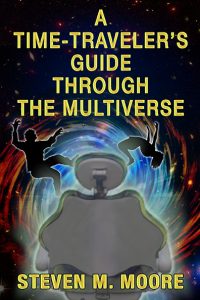 There are negatives for using the first person, though: The reader only experiences other characters indirectly via the character relating the story. One way around this is to use a combination. For example, the author can alternate the first person from chapter to chapter between two main characters. (I did that in A Time Traveler’s Guide through the Multiverse.) Or the author can alternate between first person in one chapter and third person in another. (I did that for all the “Detectives Chen and Castilblanco novels. Detective Castilblanco is almost always in first person, other characters in third. A. G. Carolan also used that technique in Mind Games.)
There are negatives for using the first person, though: The reader only experiences other characters indirectly via the character relating the story. One way around this is to use a combination. For example, the author can alternate the first person from chapter to chapter between two main characters. (I did that in A Time Traveler’s Guide through the Multiverse.) Or the author can alternate between first person in one chapter and third person in another. (I did that for all the “Detectives Chen and Castilblanco novels. Detective Castilblanco is almost always in first person, other characters in third. A. G. Carolan also used that technique in Mind Games.)
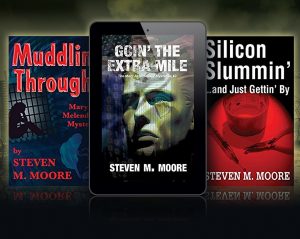 Two of my novels, Muddlin’ Through and The Last Humans, illustrate another problem with using first person: They’re both written in first person, but the main characters are women! That might give a male author pause (same for a female author writing as a male), especially in romance scenes! I took that as a challenge the first time I tried it in Muddlin’ Through (I often challenge myself), but it’s not really any different from writing third-person prose: You simply must become the character. (I suppose that’s more daunting for a male author writing as a woman than the reverse. Men tend to understand women less than women understand men, especially if the fellow isn’t very observant!)
Two of my novels, Muddlin’ Through and The Last Humans, illustrate another problem with using first person: They’re both written in first person, but the main characters are women! That might give a male author pause (same for a female author writing as a male), especially in romance scenes! I took that as a challenge the first time I tried it in Muddlin’ Through (I often challenge myself), but it’s not really any different from writing third-person prose: You simply must become the character. (I suppose that’s more daunting for a male author writing as a woman than the reverse. Men tend to understand women less than women understand men, especially if the fellow isn’t very observant!)
The art of writing includes handling POV and person correctly. Many authors can fail to do this. For example, I’ve read many British-style mysteries full of confusing head-hopping. This can be disastrous in the mystery genre. I often have to ask myself, how does this character know this? When the reader is playing detective and looking for clues, it can almost seem like cheating…or worse: The author gives away the mystery before his detective solves the case!
***
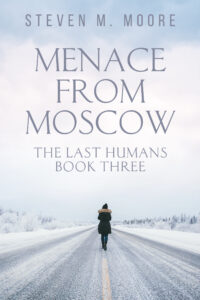 Comments are always welcome. (Please follow the rules on the “Join the Conversation” web page.)
Comments are always welcome. (Please follow the rules on the “Join the Conversation” web page.)
“The Last Humans Trilogy.” Ex-USN SAR and LA County Sheriff’s diver Penny Castro is on a forensics dive off the California coast when the world almost ends after a biowarfare attack. In the first novel, The Last Humans, she struggles to survive in the post-apocalyptic landscape that remains, but the remains of the US government exploit her survival skills. In the second novel, A New Dawn, she’s forced to leave her new family to prevent a repeat attack from the first one’s country of origin. In the third, Menace from Moscow, she must recover missiles from a sunken US submarine in the Caribbean before the Russians can get to them. Exciting armchair-travel, action, and suspense await the reader of this post-apocalyptic trilogy. All three novels available wherever quality ebooks are sold. (And if you want to see more lessons on writing fiction like this one, please download my little course “Writing Fiction,” a free PDF found in the list on my “Free Stuff & Contests” web page.)
Around the world and to the stars! In libris libertas!

